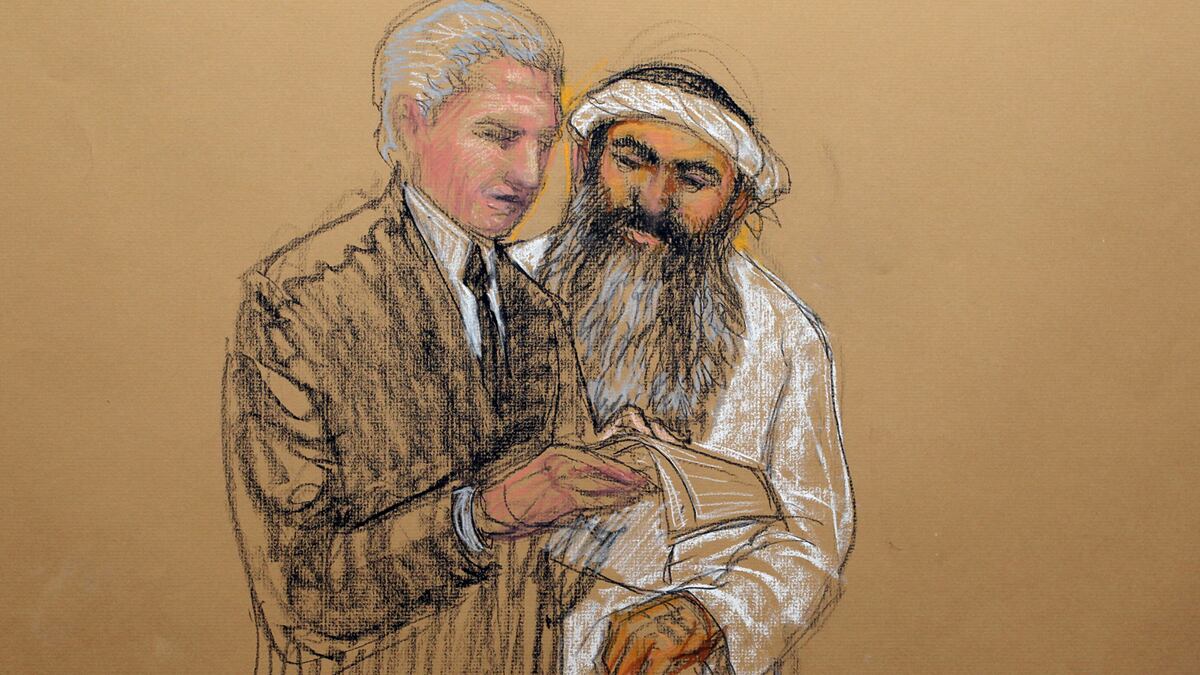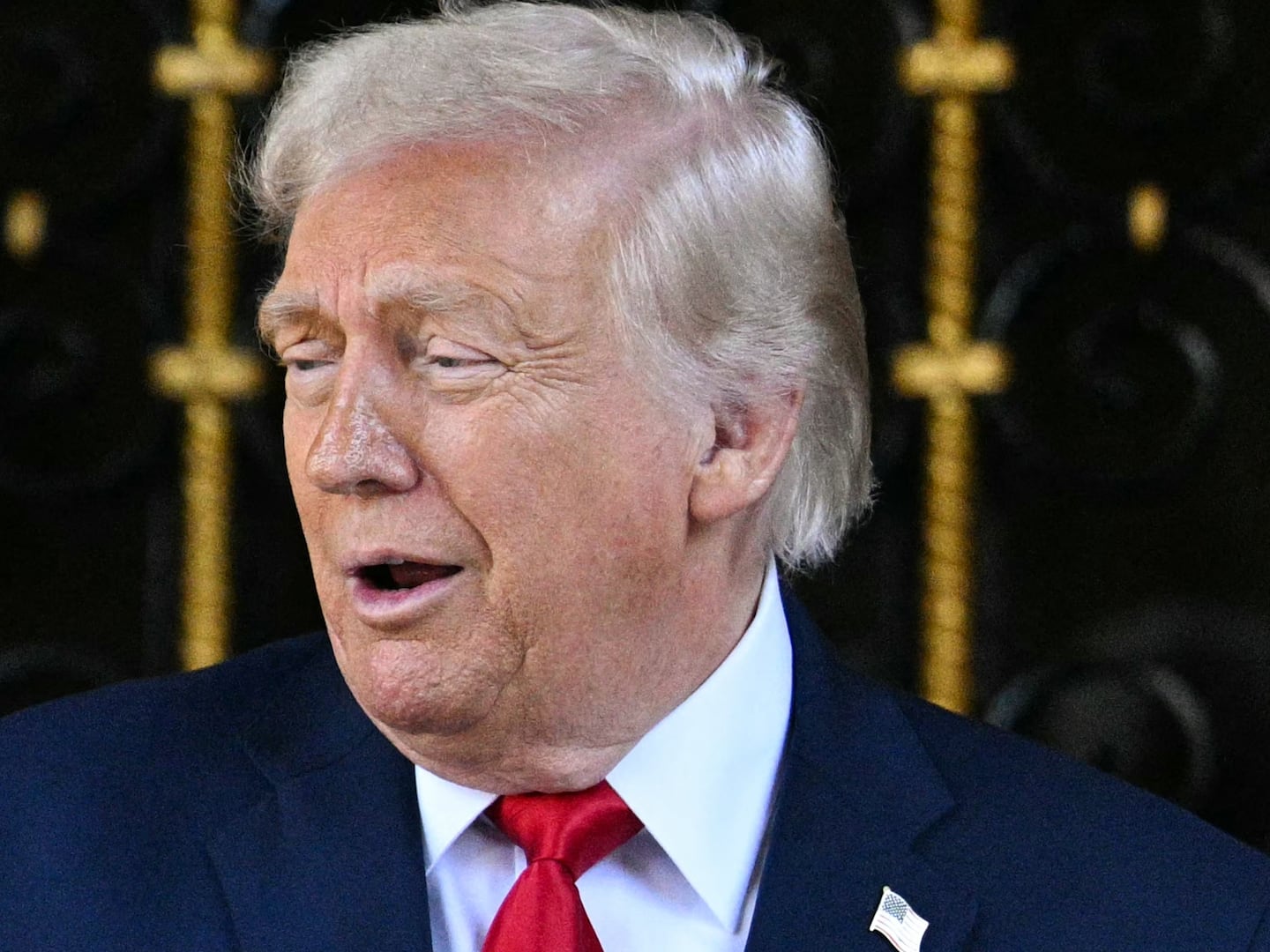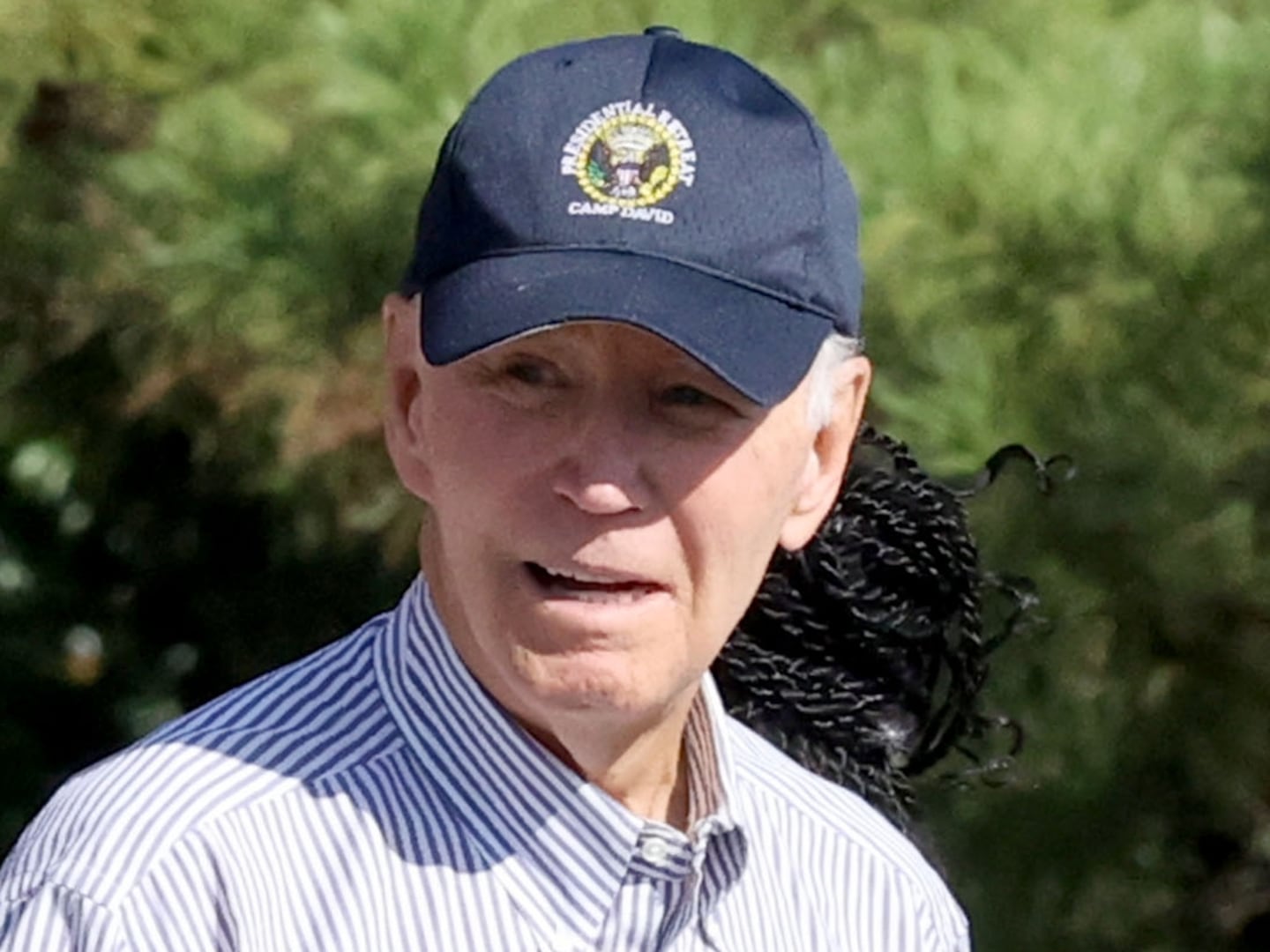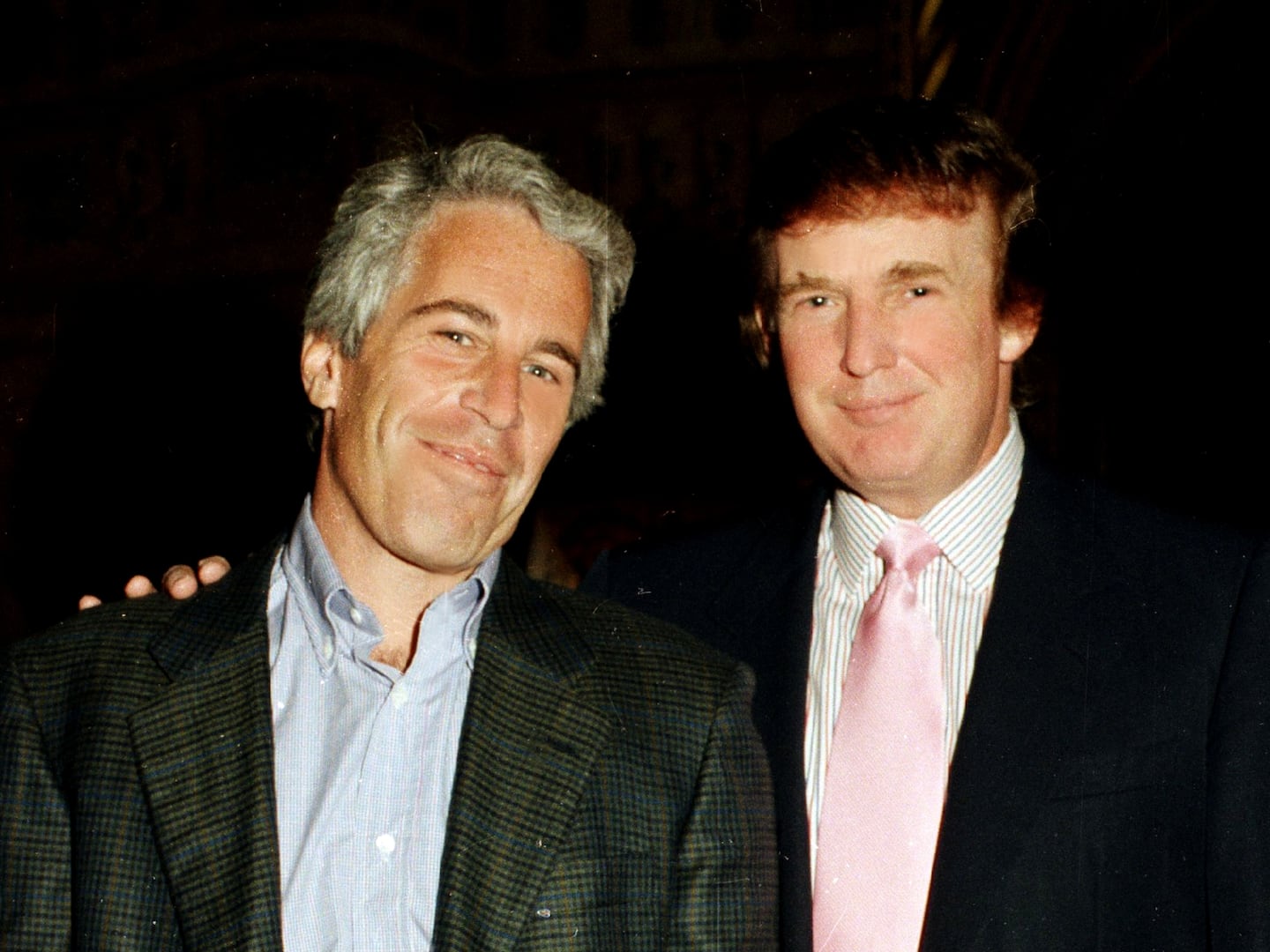Why are we making this so hard?
We have the crime of the century, willing defendants, mountains of evidence, uncoerced confessions. And still I came away from the weekend's Guantánamo Bay arraignment of the self-proclaimed mastermind of the Sept. 11 attacks, Khalid Sheikh Mohammed, wondering if there would ever be a trial. I doubt it.
I think it more likely Mohammed, known within American intelligence circles as KSM, will sit in a solitary jail cell until his carefully tended, henna-red beard turns snow white, he shrivels into old age, and passes on to whatever afterlife awaits him.
The reasons have nothing to do with the crimes committed or even with the viability of the military commission system under which he is intended to be tried. The hard issues in this case arise solely from what has happened after KSM and his four codefendants were caught. This began with their capture and torture, but doesn't nearly come to an end there.
The difficulties are all the fruit of the same poisoned tree. No, that's not right. It's not a tree, but a poisoned plantation, and it's still growing.
The arraignment at Guantánamo's Legal Expeditionary Complex Saturday lasted from 9 a.m. until 10:30 p.m., and the only time the actual alleged crimes were raised was at the formal reading of the charges at day's end. The entire rest of the time—indeed, most of the decade since he and his fellows were captured—was devoted to attempts to discuss how well or poorly the defendants have been treated, both in the black sites and at Guantánamo. I say “attempts” because no substantive discussions were permitted by Col. James Pohl, the judge.
The commission system could probably work if it were ever given a chance. That's not to say the trials shouldn't be in federal court—they should. The federal courts have been trying crimes just like this for a quarter century. A competent, experienced, federal judge, had one been allowed, would have finished this trial years ago. But the Guantánamo commissions are condemned to flawed circumstance, perhaps fatal.
Pohl, who appointed himself to the trial, is having to make up the rules of his court as he goes along. Such fundamental, simple aspects of the proceedings as providing translation to the defendants were being decided on the run Saturday. Lawyers spent 15 minutes arguing about what the defendants would wear to court.
To the irritation of the defense, Pohl is a stickler for what he kept referring to as his process, but the irony of the case is that most of what is going on is beyond his doing or control. Even if one could somehow deal with the elephant in the room—torture—Pohl would still have no control over the terms of his defendants' treatment outside the courtroom. Trying to hold objective legal proceedings in the middle of an armed camp has so many inherent contradictions as to seem impossible.
The rules by which the defendants are being held, including what access they have to their attorneys and what they can talk about with those attorneys, fall to the man who runs the Guantánamo prison, a Navy admiral who has decided that entire ranges of conversation are so precious to the security of the United States that the lawyers are forbidden to hear them.
This presumptive classification, as it is called, has been interpreted to mean that anything the detainees say that bears on the sources and methods of their capture and captivity is a state secret. This includes, so far, the means by which they were interrogated. This is daft. Forget for a moment that we already know much of this. I know how KSM was captured. I know the name of the old friend who betrayed him for the reward money. KSM surely knows how he was interrogated. In what possible world would further discussion of that knowledge, however embarrassing, be a threat to the U.S.?
I know Bush administration loyalists dismiss this sort of argument as the irrelevant carping of people not brave enough to see the world as they see it—a lonely and dangerous place where the U.S. must act boldly, alone, and outside the law as necessary.

Anyone who believes that has not spent enough time talking to our friends in the Muslim world—not our enemies, our friends—about the effects our actions have. Those who refuse to believe those effects are less than wholesome are worse than foolish; they're dangerous. The worst public-policy decisions in a generation were taken in thrall to that idea. They have compromised American security rather than protected it.
Many of those actions—the invasion of Iraq, the operation of the black sites, and their accompanying torture regime—are in the past, but the mistakes continue still at Guantánamo. The silly classification rules, the inaccessibility of the defendants to their lawyers, the monitoring of communications, the strip searches—all compromise America's moral standing and make holding a trial more difficult, not easier.
If they ever get to trial, these guys are going to be convicted. But only if they get there.
We should be bending over backward to give them every tool a robust defense can offer. We should do this not for them but for us. Doing the right thing is not a sign of weakness. It's a sign of strength. You do it because you can afford to, because you want to, because it speaks to the values of the country.






